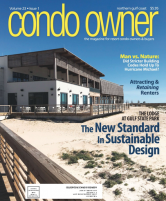Not All Association Revenue Is Tax Exempt
By Gary Poliakoff, SunSentinal.com, February 15, 2012

A Las Vegas HOA is currently fighting with the IRS over the question of whether $2 million held in the HOA’s savings account is subject to a 30% sales tax as corporate surplus.
Associations are generally organized as not-for-profit corporations (some older associations are not incorporated) and therefore must file tax returns like other not-for-profit corporations. Associations are not entitled to tax exempt status like charitable organizations. To be tax-exempt under section 501(c)(3) of the Internal Revenue Code, an organization must be organized and operated exclusively for exempt purposes set forth in the Code. To be tax exempt under IRC 501(c)(4), a homeowners’ association must operate for the benefit of the general public, i.e., it must provide a community benefit – not a benefit to the owners or residents.
However, the IRS does have filing procedures specifically for homeowners associations. IRC 528 was enacted under the provisions of the Tax Reform Act of 1976 and exempts dues or assessments received by qualified homeowners’ associations from property owner-members of the organization, where these dues and assessments are used for the maintenance and improvement of its property from income tax.
However, homeowners’ associations are still taxed on any income or support received that did not constitute dues or assessments paid by its property owner-members for maintenance and improvement of its property. That is the crux of the problem experienced by the Summerlin HOA in Las Vegas. A significant portion of its savings was generated from greens fees paid for using the community golf courses, restaurant sales and community center rentals. Associations with income from boat dock rental, storage fees, restaurants, golf courses and the like need to consult with a CPA to evaluate filing options.
There is a very informative article written by a CPA that appeared in the March 2011 issue of the Florida Community Association Journal.
You can read the article by following this link: http://www.flcaj.com/pdfdocs/tax.pdf
Bookmark the permalink.
Print Version

Leave a Reply